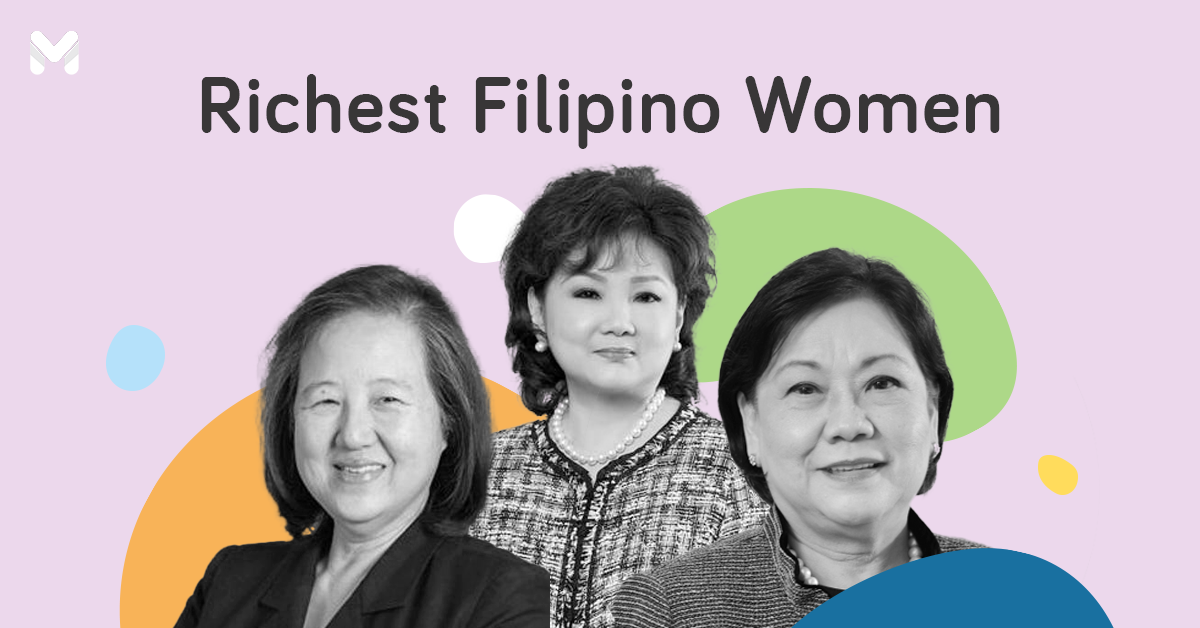On May 9, 2015, MoneyMax.ph took part in the Family FQ Workshop by the Faustos headed by Rose Fausto, also known as the FQMom, with her husband Marvin, and their three boys, Martin (25), Enrique (22), and Anton (18).
photo via marvingermo.com
Most people find it hard to entrust their funds to a market of uncertainty, let alone youngsters who have yet to learn the intricacy of money beyond books. However, the brood proved it wrong and made it seem as easy as their dancing.
While the boys’ folks are understood to be veterans in personal finance coaching and have been investment bankers for years, the young surprised the crowd with their natural talent in public speaking, and their substantial insights on saving and investing at a young age.
Featured on ANC’s On The Money, the boys share their childhood stories on wealth building.
As far as you remember, when did the concept of saving start?
Martin: I started saving when I was in first grade. I wanted to buy those BBQ flavored French Fries in school so I knew I needed cash. I especially felt the need for saving in fourth grade when I got my first cellphone. It’s been a house rule that we have to pay for our own cellphone prepaid load, hence, saving was an important habit I needed to master to be able to communicate with my friends.
Enrique: I also started saving in first grade when my mother gave me my first weekly allowance of P100. We already had baon, but this cash was intended for buying extra snacks, drinks and other things. She gave us a guideline of saving at least 20% of our allowance but challenged us to save more. Successfully, we were able to save more than 20% or at least stayed within the borderline.
Anton: I think we all started saving in first grade. I was six years old then when I received my first allowance.
Wow, you all started early. Can you tell us about your fondest childhood memory about money?
Martin: When I was given the responsibility to pay for my own cellular load, I remember looking through all sorts of permutations for the cheapest, best value-for-money deal I could get from the monthly budget I could afford. In the long run, I could say I learned the skill of cost-benefit analysis that’s very helpful. I’m not at all embarrassed when people find out that I’m still on Prepaid up because it taught me a lot.
Enrique: There was a time in my grade school days when I was pretty jealous of a friend who had an allowance of P100 a day, while mine was P100 for an entire week. I would see him buy extra-large French Fries all the time, aside from the drinks and whatever he fancied for, while I usually get the smallest size. When that P100 of his was up, he always knew he’d get another the next day. I, on the other hand, had to squeeze everything in P100 for a whole week. After sometime, I asked him, “May na-save ka ba sa P500?” He answered, “Wala. Pero meron naman next week eh” Because of that, I smiled in my head. I thought “Ok, you get more allowance than I do, but at this moment, I am richer than you are by P20.” From that experience, I was content with what I had because I know I was getting richer little by little each day.
I learned that the family goes on annual trips for goal setting and spend quality time with each other. Can you share one of your practical money saving tips on traveling, shopping, and these activities you do on the side?
Martin: When you start working, I suggest you set at least 20% of your gross income aside from savings and investment. In that way, whatever is left is the money you can rightfully and guiltlessly spend. With that, you would still be able to enjoy the fruits of your labor.
Enrique: On traveling, decide on what you want to prioritize on that trip. If you’re going to Japan for example, do you want to spend most on food, shopping, or accommodation? That way, you can focus spending on what you value. If it’s food, you can splurge on eating and lessen the expenses on accommodation, shopping, and other things that you don’t need to spend on. So even if you limit these expenditures, you’d still be happy because you spent on what you really wanted to get from that new destination.
Anton: Before I buy something, I compare its price to other things that can be bought with an equal price. It’s my way of seeing if that item does hold value for me. This helps me when I shop for clothes or when I dine out.
Your parents, Rose and Marvin, are definitely no strangers in the financial industry, particularly in the field of investment banking. How has this helped strengthen the family?
Martin: I guess in hindsight, having financially-savvy parents helped strengthen the family in a way that money was never treated negatively at home. We were able to go about our lives in terms of education, vacation trips, and passing on of values smoothly. I’m not saying that we had excess money, but we always felt we had enough of it. On one end, we were able to buy almost all the toys we wanted, but on the other, we were taught when to restrain ourselves and consider delayed gratification. I remember entering Toy Kingdom and being told that we were just entering to look around and not shop. While this normally makes a kid throw tantrums, we kept our cool in our case.
Enrique: The fact that they know much about finance means that they were able to explain to us in terms that are absolutely easy to understand what their job was all about. They elaborate economic and financial situations happening around us. It helped the family figure out what we could spend on without having to worry about the budget.
Anton: We were comfortable with money growing up. We always felt the support of our parents be it emotionally, financially, and all the support a parent gives to his or her children.
It’s amazing how you involved yourselves in the stock market earlier than most kids will. Based on your experience, what is a good type of investment for a teenager who would like to start putting a portion of his savings where it can grow?
Martin: I recommend investing in equity funds since it’s a relatively low-risk kind of investment that can be invested in the stock market. It’s an easy way to get your foot through the door of investing. You don’t have to check it regularly because professional and trained fund managers will be doing the decisions for you. It’s comparable to having your own personal shopper.
Enrique: I agree on having an equity fund. As teenagers, we still have our parents to rely on for paying our monthly bills like electric, water, food, and our tuition fees. This means we have a bigger appetite for risk that can yield us larger gains. At the same time, being young allows us to have a longer time horizon for investments we do not need to touch for more than 5 years and such. This is why I suggest placing your money in equities that do not need that large of a capital but can yield higher gains. I mentioned “fund” because as teenagers, not everyone can spend time studying the stocks so let the fund manager handle it for you. However, if you want to study the market, explore on doing research and try buying stocks yourself. I have a mix of stocks that I personally pick and invest in funds.
Anton: Most teenagers are probably intimidated of such investments. Therefore, we highlight equity fund as a good starter since you don't need any expertise in the stock market to let your money grow.
What’s your biggest financial goal and how are you working toward it?
Martin: If I look at it, it is to really have a comfortable life where I, together with my loved ones, can do what our hearts desire. I would have enough to be happy and to be able to give back to society in whatever way it needs the most.
Enrique: It would be to have saved enough by the time I reach 50, so I can decide about retiring if I want to. Whatever I would be doing beyond 50 years old would be based solely on what I truly want to do, not needing to put salary in the equation because I already have enough to live comfortably for the rest of my life. Right now, I am saving as much as I can. I’m reinvesting all of my dividends and maintaining a good savings rate that I plan increasing in percentage once I enter the workforce next month and earn my first salary.
Anton: My biggest financial goal is to be able to retire rich and happy. I work toward this goal by sticking to my everyday habits of saving and investing.
What have you learned from your childhood that you’ll live by for the rest of your life and pass on to your future family?
Martin: Money is just a means to something beyond yourself. Ang pera, kinikita lang ‘yan so don’t make it the center of your life.
Enrique: In terms of the road to wealth, as my Lola Celing would tell my dad, “It’s not how much you earn, but how much you save that counts.”
Anton: Money is something that must be talked about in the household. Many arguments arise from differences in values about money, so if these values are united, the family will be closer and at peace.
You’ve been here and there, speaking before families through your financial seminars and workshops. What piece of advice can you give to our young readers?
Martin: Always remember to pay yourself first. Always set aside something for yourself before spending on other things.
Enrique: The key to wealth and saving money is all about forming the habit. Make it a habit that when you receive your allowance, put aside the 20% so you can guiltlessly spend the rest of your money knowing that you’ve already have a portion kept to continuously build your wealth.
Anton: When you finally get a job and start earning money on your own, you will thank your past self for developing the right money habits.
From left: Anton Fausto, Enrique Fausto, and Martin Fausto
photo via The World Wink
To know more about the Fausto brothers, follow them on Twitter @martinfausto, @enriqueffausto, and @doremifausto.
DISCLAIMER: Information published on this blog or elsewhere on www.moneymax.ph should be used for general information purposes only and does not constitute investment advice, performance data or any solicitation or recommendation that any security, investment product, transaction or investment strategy is suitable for any specific person. This material does not take into account your financial situation, risk tolerance level, investment experience or objectives; all of which are unique to you. Before acting on information on this blog, we suggest consulting an independent professional to advise you on the risks of any decision and the extent of any exposure to loss.












